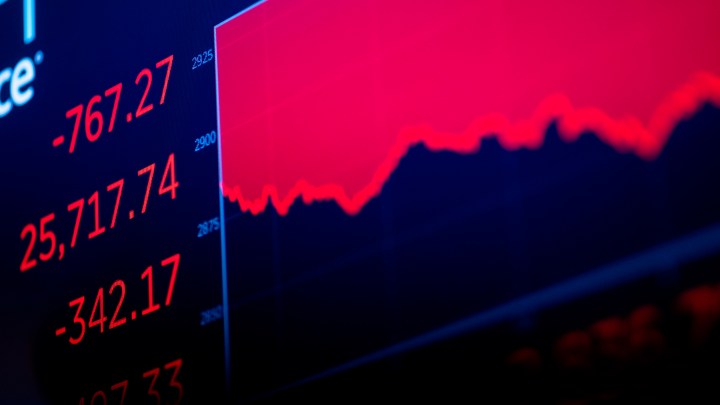
Recession risk rises with trade war

The risk of recession appears to be mounting in the U.S.
The U.S. economy is still growing, “although the rate of growth has slowed quite sharply from this time last year,” said Moody’s Analytics chief economist Mark Zandi. “And all indications are that it will continue to slow. Recession risks are now high and rising.”
Zandi puts the chance of recession in the next six to 12 months above 50%. The Wall Street Journal’s Recession Probability survey of economists currently sits at 33%.
Zandi sees multiple signs of recession risk in the sharp recent downturns in exports, manufacturing and business investment.
Robert Rogowsky at the Middlebury Institute of International Studies said that deteriorating international trade relations, President Trump’s threats of escalating punitive tariffs on Chinese imports and China’s retaliatory responses raise the risk of a U.S. recession as well.
“The uncertainty of the barriers that are being put in place gets people thinking about should we invest, should we not invest?” said Rogowsky. “And investment is an important part of economic growth.” He said that continuing disruptions to global supply chains and trade rules could further suppress business investment and “really could contribute to a recession in the coming year.”
The Federal Reserve’s recent interest rate cut, its first since 2008, is aimed in part at mitigating the negative impact of the Trump administration’s trade policies. But Phillip Braun, a finance professor at Northwestern University, said it’s not clear how much further, or more aggressively, the Fed will intervene.
“China trade policy is definitely hurting the U.S. economy and will slow down growth,” said Braun. But he said it’s hard to predict whether the Fed governors “are going to accommodate President Trump’s trade policy in the future.”
Despite the recent unnerving economic news and market gyrations, the U.S. economy is still performing well for workers and consumers. Job creation and hiring have slowed moderately, but are still solid, said Nick Bunker, an economist at the Indeed Hiring Lab: “Right now, I don’t see any indication that the U.S. labor market is in a recession or necessarily pointing towards one.”
Here are some economic indicators that would raise serious worries that the U.S. was on the brink of a recession or already in one: A sharp rapid uptick in unemployment; consumers getting the jitters from rising layoffs, or from higher prices caused by import tariffs; and pulling back on spending for back-to-school and the holidays.
There’s a lot happening in the world. Through it all, Marketplace is here for you.
You rely on Marketplace to break down the world’s events and tell you how it affects you in a fact-based, approachable way. We rely on your financial support to keep making that possible.
Your donation today powers the independent journalism that you rely on. For just $5/month, you can help sustain Marketplace so we can keep reporting on the things that matter to you.


















